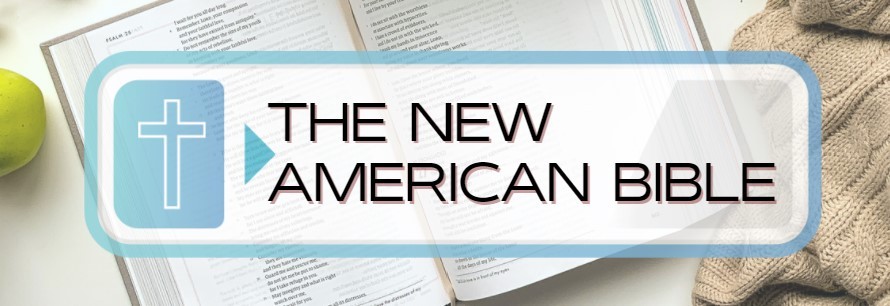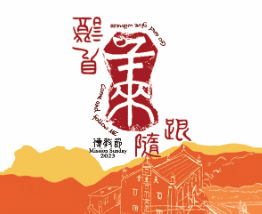THINGS A CATHOLIC SHOULD KNOW
K1.Holidays of Obligation
K1.Holidays of Obligation
Catholics of Hong Kong are obliged to refrain from servile work and to hear Mass on the following days:
1. All Sundays of the year;
2. Christmas, 25th December.
K2. Penitential Days
K2. Penitential Days
According to the new Code of Canon Law:
(1) the days and times of penance in the whole Church are every Friday of the year and the whole season of Lent.
(2) abstinence is to be observed on each Friday of the year, unless a Solemnity (Special Feast) falls on this day. The law of abstinence binds all who are over the age of 14 years. According to a regulation laid down by the late Cardinal John B. Wu, by virtue of the powers conferred by the new Code, the faithful may be dispensed from abstinence on Fridays, on condition that on these days they perform special acts of charity or piety, such as making personal sacrifices in the matter of food, alcoholic drink, smoking, or spending less time on amusements (eg. watching T.V., playing majong, etc.), or making a sacrifice of their free time in serving the poor, the sick, the elderly, the lonely and the needy.
(3) Fast and abstinence are to be observed on Ash Wednesday and Good Friday of each year. The law of fast binds all those who are over the age of 18 years and have not yet reached their 60th year. When Ash Wednesday coincides with the Lunar New Year’s celebrations all are dispensed from fast and abstinence on that day. In this case the faithful are still obliged to choose for themselves some
other suitable forms of penance, or make a donation to the poor. Abstinence means the giving up of eating meat. Fasting permits the eating of one full meal. Two other meatless meals, sufficient to maintain strength, may be taken according to each one’s needs; but, together, they should not equal a full meal. Eating between meals is not permitted; but liquids, including milk and fruit juices, are allowed. In addition to this, during Lent, the faithful are exhorted to make a special effort in the practice of works of piety, such as daily Mass, daily visits to the Blessed Sacrament or the Stations of the Cross.
K3.On reception of Holy Communion
K3.On reception of Holy Communion
Frequency of Holy Communion and Eucharistic Fast Church Law allows the faithful who have already received Holy Communion to receive it a second time only on the same day at a Mass in which they participate.
When the faithful have a just cause for asking for Holy Commuion outside Mass, it should be administered to them. The liturgical rites should be followed.
Faithful who wish to receive Holy Communion must abstain from any food or beverages for at least one hour before its reception. Water and medicine may be taken at any time.
The elderly and the sick, as well as persons caring for them, may receive Holy Communion even though they have not observed the eucharistic fast.
All the faithful who have received First Holy Communion are bound to receive the Holy Eucharist at least once a year. (Before receiving First Holy Communion children should receive the Sacrament of Penance).
Those who are in danger or death from any cause should be strengthened by the reception of the Eucharist as Viaticum. Whenever a person becomes seriously ill, it is the duty of the family to inform the parish priest in good time so that the sick person may receive the Sacraments while fully conscious.
Regulations for Distribution and Reception of Holy Communion
(Note: For details, see https://catholic.org.hk/ en/holycommunion/)
The faithful may freely choose between Communion on the tongue or in the hand,
between receiving communion standing or kneeling, and between Communion
under the species of bread only or under the species of bread and wine.
K4. Guidelines for Catholics Intending Marriage
K4. Guidelines for Catholics Intending Marriage
Every marriage is a lifelong covenant of love and fidelity. If both parties are baptised, marriage is also a sacrament. The Church and the State have vital interest in marriage, since marriage by its very nature has an ecclesiastical and social dimension; therefore both authorities lay down certain conditions on which their recognition of a marriage depends. I. Civil Law Requirements:
1. The marriage is to take place in a licensed church (see Part III).
2. In ordinary cases the parties are to obtain beforehand a marriage licence (Certificate of Registrar of Marriages) from a Marriage Registry.
3. The giving of notice at the Marriage Registry must be made by one or both parties to the proposed marriage attending personally at the Marriage Registry with their identity cards or passports or some other identifying documents.
Ample notice of the intended marriage should be given at a Marriage Registry.
The marriage licence may be obtained 17 days after the giving of notice. If the marriage does not take place within 3 months of the date on which the notice was given, a new licence must be obtained.
4. Persons over 16 and under 21 years of age who intend to marry must produce to the Registrar the written consent of their father, or, if he is dead or non compos mentis, of their mother, or, if both are dead or non compos mentis, of their lawful guardian.
II. Church Law Requirements:
1.Notice should be given at the Church of the wedding as early as possible, but in any case at least 6 months before the proposed wedding date.
2. The proximate preparation for marriage consists of three steps
(1) Registration with the church of the wedding:
a) This involves choosing the place and date of the wedding and filling out a preliminary form on the personal data and free status of the parties.
b) The parties shall be reminded by the church office by way of a written statement that if they make false declarations about their free status and this is discovered prior to their wedding, then the wedding may not take place, and the church concerned shall not bear any responsibility whatsoever, even if in the meantime other preparations have been made for the wedding.
c) When a marriage is to be celebrated outside this Diocese, documents must pass through the Chancery for “certification.”
d) When a Catholic is coming to Hong Kong in order to marry, he must at least produce a recent baptismal certificate issued “for marriage purposes” and duly authenticated by the Chancery Office of his diocese of origin. In case of a non-Catholic, he/she shall produce adequate documentation to prove his/her freedom to marry.
e) When both parties come to Hong Kong to marry, they must present to the parish priest of the parish where they intend to marry the completed prenuptial inquiries, made by the parish priest of one of them or of the Catholic party in a mixed marriage, along with all the other documents normally required.
These documents must be duly authenticated by the Chancery Office of the diocese in which they were issued. Before proceeding with the marriage the parish priest must present these documents to the Hong Kong Chancery Office and obtain a written nihil obstat.
f) The proposed wedding date shall be confirmed only when the pre-marriage inquiry has been duly conducted and a baptismal certificate issued within six months, a license of the Marriage Registry, and other necessary documents have been submitted to the church office.
(2) Participation in one of the available Pre-Marriage Formation Programmes.
(3) Pre-Marriage inquiry conducted by a priest:
The inquiry may take place either before or after the pre-marriage formation programme.
The priest responsible for the pre-marriage inquiry is the proper pastor of a Catholic party (or of one of the Catholic parties), i.e., the parish priest of his/her domicile, or the chaplain in charge of his/her community (as in the case of an ethnic group) or an assistant priest delegated by them.
A Catholic who has a close link (through regular Sunday Mass attendance, joining a lay association, etc.) with a parish which is not his/her proper parish, may also ask the parish priest of that parish to conduct his/her pre-marriage inquiry.
3. If a major obstacle to marriage is discovered, the priest will make the decision if there is to be a delay of the wedding after a prudent evaluation and due consultation with the Chancery Office.
4. Every marriage of which at least one of the parties is a Catholic ordinarily is to take place:
(a) before a priest or deacon; and
(b) in the presence of two witnesses.
In special case the Bishop may grant dispensation from the above Canonical Form.
5. Before contracting marriage, Catholic are earnestly recommended to receive the Sacrament of Penance and Holy Communion. Those who have not yet received the Sacrament of Confirmation should receive it if they can do so without grave inconvenience.
III. Catholic Churches Licensed For
Marriage
(Note: For details, see https://catholic.org.hk/en/marriage/)
K5.Infant Baptism
K5.Infant Baptism
1. Obligation of Infant Baptism
“Baptism, the gateway to the sacraments, is necessary for salvation, either by actual reception or at least by desire. By it people are freed from sins, are born again as children of God and, made like to Christ by an indelible character, are incorporated into the Church” (can. 849). As far as infant baptism is concerned, the new Code states the following:
(a) in ordinary circumstances -”Parents are obliged to see that their infants are baptised within the first few weeks” (can. 867, par. 1);
(b) in danger of death - an infant is to be baptised without delay (can. 867, par. 2); the same rule applies to those who habitually lack the use of reason, because they are regarded as infants (can. 99). Infants of non-Catholic parents may be baptised in danger of death even if the parents are opposed to it (can. 868, par. 2), but in this case prudence must be exercised.
2. Pastoral Directives
Infant Baptism is not a violation of the child’s freedom. Since the well-being of an infant’s future Christian life is closely related to the parent’s life of faith, the Church will not entrust parents’ with the task of nurturing an infant’s faith if they themselves do not practise the faith.
Indications that these assurances are existent are regular attendance at Sunday Mass, devout reception of sacraments, prayers, Scripture readings, acts of charity, etc.
On the other hand, when parents ask to have their child baptised simply for worldly or superstitious motives (e.g., for admittance to a Catholic school, to obtain corporal blessings, or to be saved from misfortune), baptism should be refused or delayed until, through catechetical instruction, they can grasp the real significance of baptism.
Similarly, when Catholics who are married civilly only ask for baptism of their children, the sacrament should also be refused or delayed unless, meanwhile, they make a sincere promise to have their marriage regularized and return to Church life.
3. Practical Guidelines
(a) Parents rather than other relatives should apply for their infant’s baptism, thus showing their awareness that responsibility for the baptism of their children rests primarily on them;
(b) when selecting god-parents, parents should take into consideration the person’s spiritual maturity and his relationship with the child;
(c) as a rule and unless a just reason suggests otherwise, parents should have the child baptised in their own proper parish (cf. can. 857, par. 2)
(d) parents and god-parents, whenever possible, should attend the instruction course arranged for them by the parish in order to fully understand the meaning of infant baptism and their responsibility;
(e) infant baptism should normally be administered after the parents have obtained their child’s birth certificate. This is to avoid possible discrepancies in spelling of names, dates, etc.
K6. Special Collections
K6. Special Collections
On the following days of the year, at all public Masses in parish churches and chapels, a second collection is to be taken up for the specific purposes indicated:
(i) Third Sunday of January-for Peter’s Pence;
(ii) Second Sunday following Lunar New Year-for Hong Kong Central Council of Catholic Laity;
(iii) Vocation Sunday-for Diocesan Seminary;
(iv) Ascension Sunday-for Diocesan Social Communications Apostolate;
(v) Sunday closest to the Solemnity of Ss. Peter and Paul-for the Apostolic See;
(vi) Fourth Sunday of September (Education Day)-for Catholic Education;
(vii) Sunday following Mission Sunday-for Pontifical Work for the Propagation of the Faith.
(viii) Second Advent Sunday – for church building and development projects of the Diocese.
*Further, parish churches and chapels are to take up a collection for the Holy Land on Good Friday, during the celebration of the Lord’s Passion or the Way of the Cross.
K7. Mass offerings
K7. Mass offerings
By order of Cardinal John Tong, starting from 1st January 2016: The offering for the celebration of Mass for a specific intention shall be HK$100.00 (minimum).
N.B. Whenever singing or extra flowers are requested on the occasion of a marriage, funeral or other celebration, the person concerned may make the necessary arrangements directly with the choir and florist, or he may have these arrangements made by the parish and defray the cost.
K8. Fund Raising
K8. Fund Raising
Any person, whether cleric, religious or lay, wishing to collect money for any pious purpose or to solicit funds for a Catholic institution (church, hospital, school, etc.) has to obtain the written permission of the Bishop.
This refers to all means of collecting money such as bazaars, raffles, gala premieres, door-to-door calls, walkathons, special sales.
The faithful are hereby warned that donations for any pious or ecclesiastical institution or purpose can be solicited only by persons duly authorized, as stated above.
To avoid abuses and to ensure the proper coordination of fund-raising activities in the diocese, the written permission of the Bishop is to be requested well in advance, each time these activities are to be carried out.
This permission is to be obtained before any approach is made to the relevant civil authorities.
K9.What to do when a Catholic Dies
K10.Angels’ Garden
Contact Us
 Copyright© 2024 Catholic Diocese of Hong Kong
Copyright© 2024 Catholic Diocese of Hong Kong - 教區視聽中心服務收費表
- Catholic Diocese Centre 9/F Booking
- privacy policy
- | Disclaimer
- | Copyright
- |Sitemap
Overseas Link
Church of Sts. Peter and Paul
Sacred Heart Chinese Catholic Mission at St. Aidan Catholic Church
St.Clare Church
Church of the Transfiguration
Our Lady of the Assumption RC Church
Sydney St. Peter Julian’s Church
CRBC
-Catholic Kaohsiung Diocese
-Catholic Taichung Diocese
Catholic De Macau
CDMCS Macau
Sacred Heart Chinese Catholic Mission at St. Aidan Catholic Church
St.Clare Church
Church of the Transfiguration
Our Lady of the Assumption RC Church
Sydney St. Peter Julian’s Church
CRBC
-Catholic Kaohsiung Diocese
-Catholic Taichung Diocese
Catholic De Macau
CDMCS Macau



